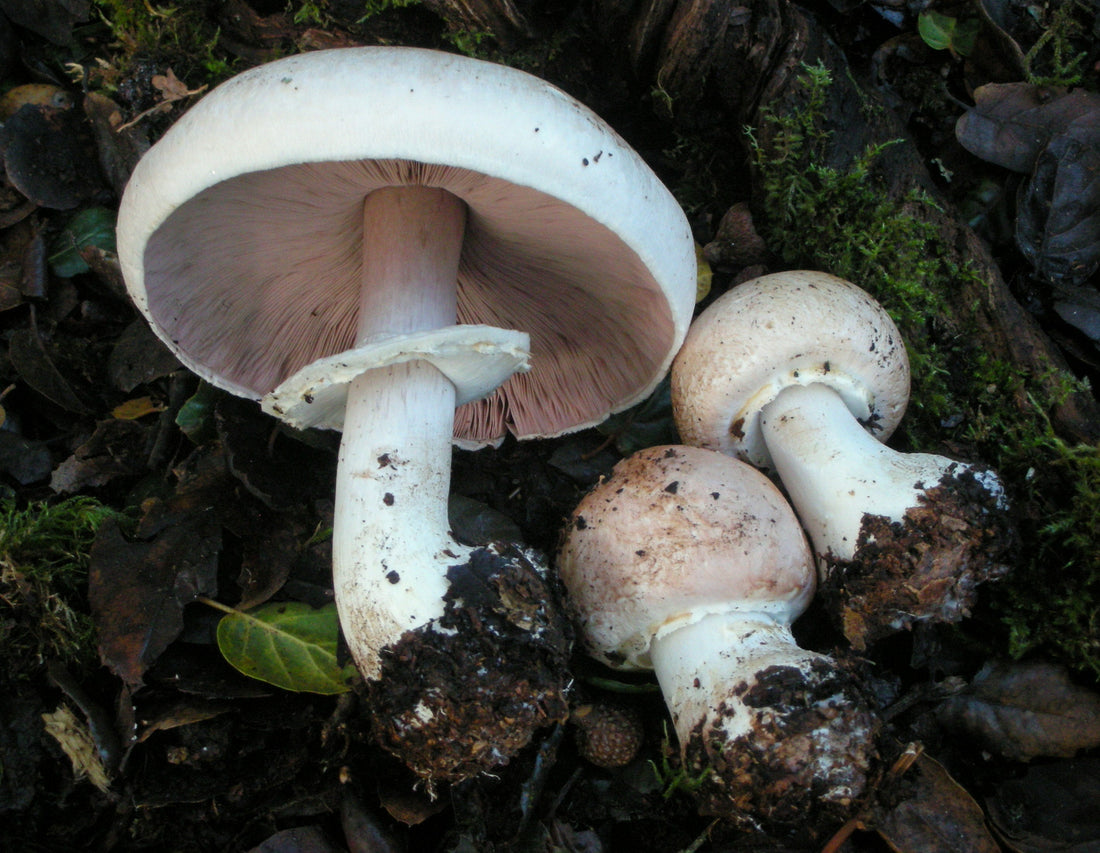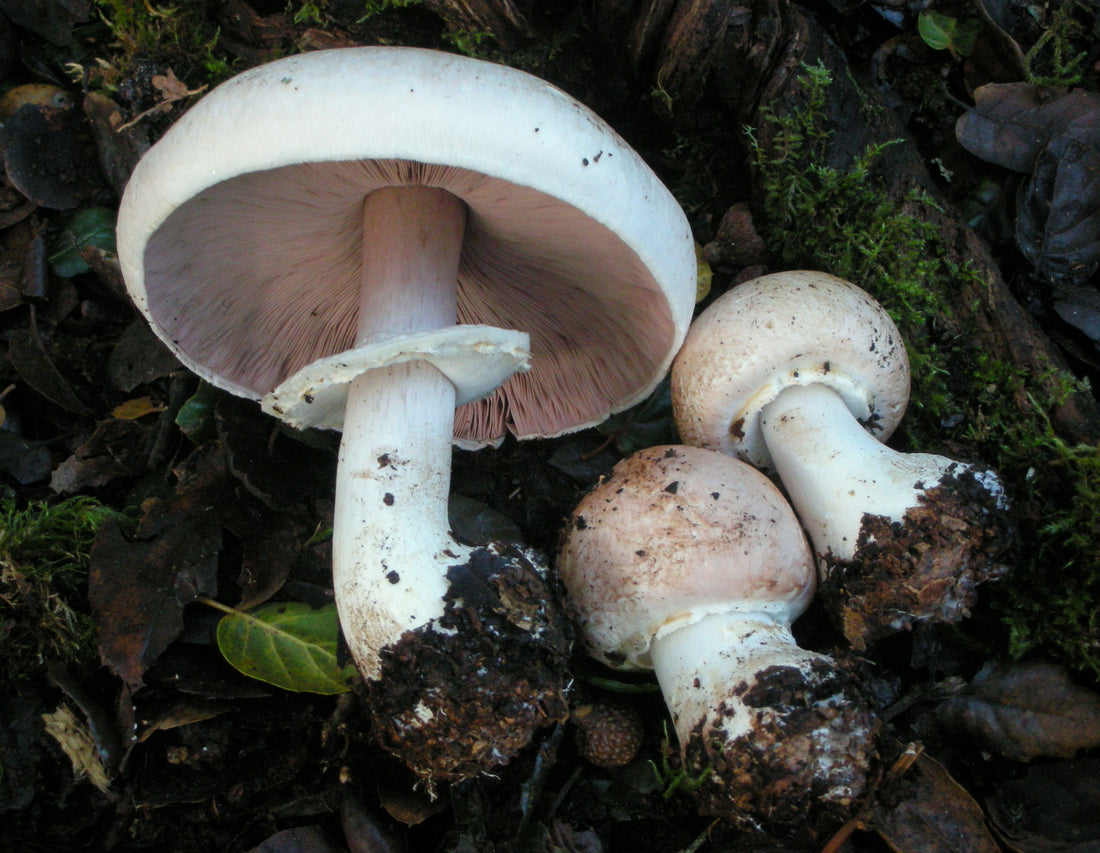 Agaricus Mushroom Extract 30%, USDA Organic
Agaricus Mushroom Extract 30%, USDA Organic
TMW® Agaricus extract is the highest concentration on the market of beta-glucans 1,3 and 1,6.
Agaricus blazei Murrill, also known as Agaricus brasiliensis or Agaricus subrufescens, is a species of mushroom that is native to the Brazilian rainforest but is now cultivated and consumed worldwide for its potential health benefits. It contains various bioactive compounds, including polysaccharides, beta-glucans, ergosterol, and antioxidants, which are believed to contribute to its potential health-promoting effects. It has been studied for its immunomodulatory properties, meaning it may help regulate and strengthen the immune system. Some studies have indicated that it can enhance natural killer cell activity, stimulate the production of cytokines, and exhibit antioxidant effects.
Benefits
Immune system support: Agaricus blazei Murrill is often praised for its immunomodulatory properties. It may help regulate and enhance the immune system's response, potentially improving immune function and increasing resistance to infections.
Antioxidant activity: Agaricus blazei Murrill contains antioxidants, such as phenols and flavonoids, which can help neutralize harmful free radicals in the body. Antioxidants play a crucial role in protecting cells from oxidative stress and may have anti-aging and disease-fighting effects.
Anti-inflammatory properties: Some research suggests that Agaricus blazei Murrill may have anti-inflammatory effects. Chronic inflammation is associated with various health conditions, including heart disease, diabetes, and certain cancers. By reducing inflammation, Agaricus blazei Murrill may potentially contribute to the prevention or management of these conditions.
Blood sugar regulation: Preliminary studies have indicated that Agaricus blazei Murrill may have a positive impact on blood sugar levels. It has been reported to enhance insulin sensitivity and improve glucose metabolism. These effects may be beneficial for individuals with diabetes or those at risk of developing the condition.
Agaricus blazei Murrill (ABM) Mushroom effects on the 12 Hallmarks of Aging:
Telomere Attrition:
ABM's antioxidant properties could help reduce oxidative stress, which is one of the factors associated with telomere shortening.
Cellular Senescence:
ABM's antioxidants combat oxidative stress, indirectly preventing the accumulation of senescent cells by reducing cellular damage. Additionally, ABM's immunomodulatory properties enhance immune function, potentially aiding in the identification and elimination of senescent cells through a robust immune response.
Inflammation:
Extracts with β-glucans caused significant up-regulation of immune-related genes, including pro-inflammatory genes IL-1β and IL-8, in a human white blood cell line.
Dysregulated Autophagy:
ABM's antioxidants reduce oxidative stress, indirectly supporting autophagy. Its bioactive compounds may influence autophagy-related signaling pathways like mTOR. ABM's immunomodulatory effects also impact autophagy due to its connection with the immune system.
Genomic Instability:
ABM's antioxidants reduce oxidative stress, indirectly supporting genetic stability by preventing DNA damage. Its anti-inflammatory properties also mitigate inflammation, reducing factors that contribute to genetic instability.
Mitochondrial Dysfunction:
By reducing oxidative damage, ABM may indirectly support mitochondrial health.
Stem Cell Exhaustion:
Although it does not impact stem cells directly, by supporting a healthy body ABM can increase the effectiveness of stem cells indirectly.
Loss of Proteostasis:
ABM's antioxidants reduce oxidative stress, indirectly supporting proteostasis by preventing protein misfolding and aggregation through maintaining proper protein folding.
Deregulated Nutrient Sensing (metabolic disorders):
ABM's polysaccharides and dietary fibers influence nutrient absorption and metabolism, potentially impacting nutrient sensing and metabolic processes. Studies suggest ABM may regulate blood sugar, affecting glucose metabolism and insulin sensitivity, indirectly influencing nutrient sensing and metabolic health.
Altered Intercellular communication:
ABM can regulate communication between immune cells, influencing immune defense and regulation. Its bioactive compounds, including polysaccharides and beta-glucans, interact with cellular signaling pathways, potentially affecting intracellular and intercellular communication processes.
Microbiome Dysbiosis:
ABM has been reported to have prebiotic effects, meaning it can serve as a food source for beneficial bacteria in the gut.
Sources:
Agaricus blazei Murill as an efficient hepatoprotective and antioxidant agent against CCl4-induced liver injury in rats
https://www.ncbi.nlm.nih.gov/pmc/articles/PMC3730730/
The Medicinal Mushroom Agaricus blazei Murrill: Review of Literature and Pharmaco-Toxicological Problems
ncbi.nlm.nih.gov/pmc/articles/PMC2249742/
Antitumor, Anti-inflammatory and Antiallergic Effects of Agaricus blazei Mushroom Extract and the Related Medicinal Basidiomycetes Mushrooms, Hericium erinaceus and Grifola frondosa: A Review of Preclinical and Clinical Studies
https://www.ncbi.nlm.nih.gov/pmc/articles/PMC7285126/
Assessment of antioxidant and antidiabetic properties of Agaricus blazei Murill extracts
